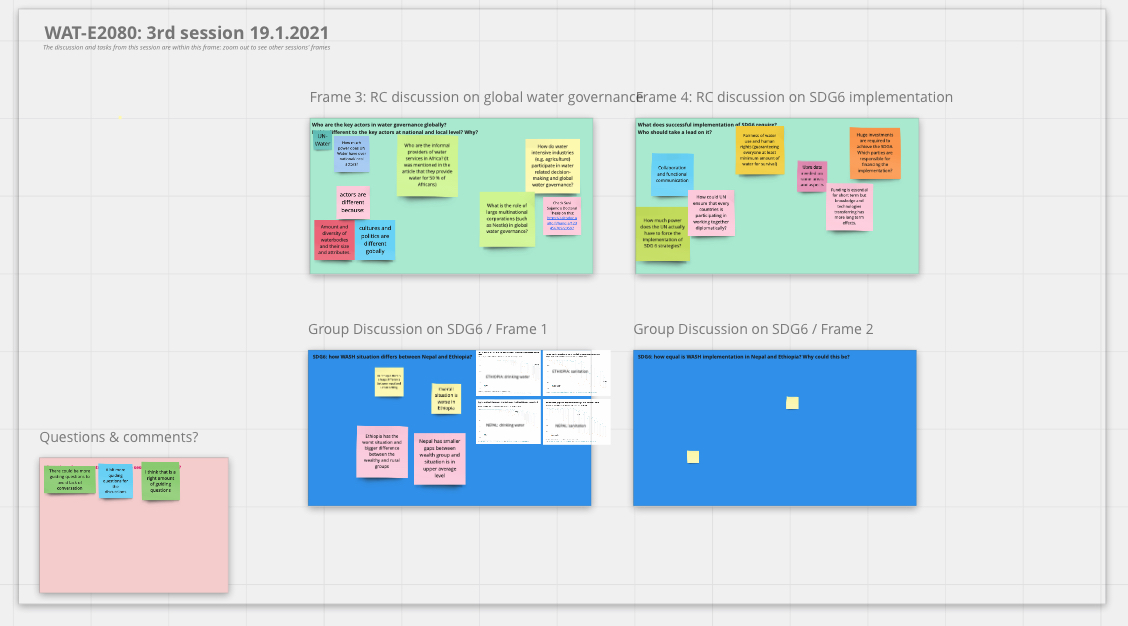
Marko Keskinen – 27.1.2021 — The longer Finnish version can be found here.
Covid-19 pandemic forced the universities to move to a remote learning mode. While this provides new kinds of opportunities for teaching and learning, it challenges both the students and teachers: interaction is more difficult and students are reporting increasing levels of exhaustion and loss of unity and study motivation. Talking from home to your laptop screen is also, simply, super-boring.
In my related Finnish-language blog post, I share some practical experiences on how I have tried to improve remote learning for both students and teachers. I synthesize my experience into three key principles: restructuring, rhythm and reflection. I will next go them briefly through also in English.
Restructuring indicates the importance to re-think the ways we teach and interact: moving into a virtual learning mode also multiplied the possibilities for different online learning platforms. While this increased diversity provides great possibilities, it can also cause confusion – at worst the new, shiny tools (different online platforms) take over the aim (learning).
Our experience has shown that also here less is more: it is useful to use as few online platforms as possible and to decide those based on the actual learning objectives of your course. It also helps to have a clear, visual structure for your online platforms and the reasons for their use: some are more hand for contact sessions, others for group work or interactive brainstorming. In our current Water & Governance course, the combination of MyCourses-Teams-Miro has turned out to be working pretty well.
The rhythm of the contact session –and the entire course– is even more important than before, as direct interaction with students is more difficult. Finding differing ways for interaction and having enough breaks is the key! Students are not that eager to interact in large groups online but do find clearly structured small-group discussions and other interactive tasks useful. We, therefore, try to have enough of those during our contact sessions, using e.g. Miro or other online interaction platforms as a way to document their discussion.
Reflection is one of my key pedagogic principles, as it does enhance learning and provide a possibility to consider your entire learning process. This is even more important in the online learning environment, both for students and teachers. I try to look back and learn from all online contact sessions I’ve had, often through discussions with my peers. Similarly, we enable students to reflect on their learning throughout the learning process through small reflective tasks such as personal take-home messages or synthesizing discussions. At the end of the course, we also encourage reflection and synthesis of the entire course, including both its content and the related learning process.
Finally, it should be noted that all these principles aim essentially to enhance the ways we can ‘copy-paste’ the live contact sessions into the online environment. Running virtual learning even is, however, never exactly the same, and we should also make more active use of the entirely different types of opportunities that online learning provides. Already on-going initiatives such as climateuniversity.fi and FiTech.io provide already nice examples on the ways forward.
While appreciating the online experience, the main message this time has provided for me is very clear. For I’m even more convinced than before that one of the main tasks for university teaching is to provide a sense of community and a platform for interaction: this happens best live, in the same physical environment. I cannot therefore wait to get back to the campus to meet the students, discussing, debating and learning together. Until then – let’s make the most out of our online learning mode!

